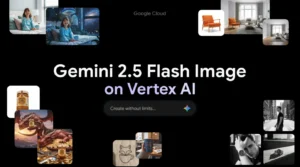12 Best AI-Powered Tools for AI Agents Integration & Automation
Are you tired of AI tools that promise the world but deliver glorified chatbots? We get it. The AI agent landscape is cluttered with overhyped platforms that can’t handle real-world complexity. But here’s the thing – among all the noise, there are genuine game-changers. The best AI-powered tools for AI agents integration we’re about to explore aren’t just marketing fluff; they’re battle-tested solutions that enterprises trust with their most critical workflows.
Botpress
Botpress stands out as one of the most user-friendly platforms for building AI agents with extensive integration capabilities. What makes it special is the visual workflow design that lets you create complex automations without writing a single line of code.
Key Features
- Drag-and-drop interface for no-code bot creation
- Multi-channel support across websites, WhatsApp, Slack, and more
- Advanced NLU capabilities with personality customization
- Extensive AI integrations with major platforms
- Built-in emulator for testing and debugging
Pricing
Botpress offers a freemium model with paid plans starting at competitive rates for advanced features and higher usage limits.
Pros and Cons
Pros:
- Extremely beginner-friendly
- Strong template library
- Excellent multi-channel deployment
- Active community support
Cons:
- Limited customization for complex enterprise needs
- Can become expensive at scale
Best for: Small to medium businesses looking for quick deployment and ease of use.
Moving from visual builders to more developer-focused solutions, let’s explore the framework that’s become the gold standard for LLM-based agents.
LangChain
LangChain has become the go-to framework for developers building sophisticated AI agents. It’s particularly powerful for creating agents that need to reason, use tools, and maintain memory across complex tasks.
Key Features
- Agent abstractions supporting React-style and custom chains
- Memory modules for short-term and long-term context retention
- Tool integration with APIs, databases, and search engines
- LangSmith integration for debugging and optimization
- LangServe for easy deployment
Pricing
Open-source framework with optional paid services like LangSmith for debugging and monitoring.
Pros and Cons
Pros:
- Highly flexible and customizable
- Strong developer community
- Comprehensive documentation
- Excellent for complex workflows
Cons:
- Steep learning curve
- Requires programming knowledge
- Can be overwhelming for beginners
Best for: Developers and technical teams building custom AI solutions with complex requirements.
When you need multiple AI agents working together like a well-oiled team, the next platform shines brightest.
CrewAI
CrewAI specializes in multi-agent collaboration, making it perfect for scenarios where different AI agents need to work together on complex projects.
Key Features
- Role-based agent assignment for specialized tasks
- Intelligent collaboration between agents
- Custom tool and API integration
- Workflow management for sequential and parallel processes
- Performance analytics for optimization
Pricing
Open-source with enterprise support options available.
Pros and Cons
Pros:
- Excellent for team-based AI workflows
- Clear role definition prevents overlap
- Strong coordination capabilities
- Cost-effective open-source model
Cons:
- Requires careful planning for role assignments
- Can be resource-intensive with multiple agents
- Learning curve for multi-agent orchestration
Best for: Organizations needing collaborative AI agents for complex, multi-step processes.
For enterprises looking for robust, secure integration capabilities, Microsoft’s offering brings enterprise-grade reliability to AI agent development.
Useful Articles:
Microsoft Semantic Kernel
Microsoft Semantic Kernel provides a flexible orchestration framework designed specifically for embedding AI capabilities into existing enterprise applications.
Key Features
- Goal-oriented planning with automatic task breakdown
- Memory and context management using embeddings
- Multi-language support (C#, Python, Java)
- Enterprise-grade security and compliance
- Modular skill system for reusable components
Pricing
Open-source framework with enterprise support available through Microsoft.
Pros and Cons
Pros:
- Strong enterprise integration
- Robust security features
- Multi-language flexibility
- Microsoft ecosystem compatibility
Cons:
- Can be complex for simple use cases
- Requires Microsoft stack familiarity
- Limited community compared to other frameworks
Best for: Enterprise organizations already using Microsoft technologies and needing secure AI integration.
Speaking of collaboration, our next platform takes a conversation-driven approach to multi-agent coordination.
AutoGen
AutoGen focuses on structured conversation between agents, enabling sophisticated collaboration through message-passing and role assignment.
Key Features
- Multi-agent messaging with structured conversations
- Role assignment for specialized agent functions
- Tool access integration with APIs and human inputs
- Auto retry and recovery mechanisms
- Conversation tracing for debugging
Pricing
Open-source framework developed by Microsoft Research.
Pros and Cons
Pros:
- Innovative conversation-based approach
- Strong collaboration features
- Excellent debugging capabilities
- Active research backing
Cons:
- Still relatively new
- Requires careful conversation design
- Limited production examples
Best for: Research teams and developers experimenting with conversational AI agent collaboration.
For those who want to push the boundaries of autonomous AI behavior, the next platform offers impressive self-direction capabilities.
AutoGPT
AutoGPT represents the cutting edge of autonomous AI agents that can plan and execute tasks with minimal human oversight.
Key Features
- Self-planning capabilities for goal-driven tasks
- Plugin support for extended functionality
- Vector memory for context retention
- Minimal supervision requirements
- Web browsing and file manipulation
Pricing
Open-source with optional cloud hosting services.
Pros and Cons
Pros:
- Highly autonomous operation
- Impressive self-direction capabilities
- Strong plugin ecosystem
- Cutting-edge AI research
Cons:
- Can be unpredictable
- Requires careful goal setting
- May need frequent monitoring
- Resource-intensive
Best for: Developers and researchers exploring autonomous AI capabilities and experimental workflows.
Now let’s shift gears to platforms that excel at connecting AI agents with existing business tools and APIs.
Knit
Knit specializes in rapid integration deployment, allowing AI agents to connect with dozens of applications within minutes rather than weeks.
Key Features
- Rapid integration deployment in minutes
- 100% API coverage through unified interfaces
- Custom integration options with precise control
- Testing sandboxes for validation
- One-click publishing for live deployment
Pricing
Custom pricing based on integration needs and usage volume.
Pros and Cons
Pros:
- Extremely fast deployment
- Comprehensive API coverage
- Strong testing capabilities
- Minimal technical barriers
Cons:
- Custom pricing can be unclear
- Newer platform with limited track record
- May require vendor lock-in
Best for: Businesses needing quick integration deployment with minimal technical overhead.
For organizations already invested in workflow automation, the next platform offers familiar territory with AI enhancements.
Zapier AI Agent
Zapier has evolved beyond simple automation to offer AI-driven workflow intelligence that can make decisions and handle complex scenarios.
Key Features
- AI-driven automation with intelligent decision-making
- Extensive app ecosystem with thousands of integrations
- Natural language processing for workflow creation
- Enterprise-grade security and compliance
- Advanced workflow management
Pricing
- Starter: $49/month for basic AI automation
- Professional: $199/month for advanced features
- Enterprise: Custom pricing for large organizations
Pros and Cons
Pros:
- Massive integration ecosystem
- User-friendly interface
- Strong reliability track record
- Excellent customer support
Cons:
- Can become expensive at scale
- Limited deep customization
- AI features still developing
Best for: Mid-sized enterprises looking for reliable automation with growing AI capabilities.
Moving into specialized enterprise solutions, our next platform brings comprehensive AI agent capabilities to large organizations.
SearchUnify
SearchUnify offers a comprehensive suite of autonomous AI agents designed specifically for enterprise functions like support, knowledge management, and HR.
Key Features
- Purpose-built AI agent library
- Human-in-the-loop framework for oversight
- Enterprise-grade security with encryption
- Agile adaptation to changing needs
- Cross-functional integration
Pricing
Enterprise pricing with custom packages based on organizational needs.
Pros and Cons
Pros:
- Comprehensive enterprise focus
- Strong security features
- Human oversight integration
- Multiple business function support
Cons:
- Enterprise-only pricing
- May be overkill for smaller organizations
- Requires significant implementation
Best for: Large enterprises needing comprehensive AI agent solutions across multiple departments.
For organizations already using Salesforce, the next platform offers seamless integration with familiar tools.
Useful Articles:
Salesforce Agentforce
Salesforce Agentforce provides low-code agent building specifically designed for Salesforce users, with deep integration into the Salesforce ecosystem.
Key Features
- Low-code agent builder with visual interface
- Deep Salesforce integration with Data Cloud and Tableau
- Enterprise-grade security and guardrails
- Scalable automation for business functions
- Role and action customization
Pricing
Integrated with Salesforce pricing tiers, with additional costs for advanced AI features.
Pros and Cons
Pros:
- Seamless Salesforce integration
- Strong enterprise features
- Familiar interface for Salesforce users
- Robust security and compliance
Cons:
- Limited to Salesforce ecosystem
- Can be expensive
- Requires Salesforce expertise
Best for: Organizations heavily invested in Salesforce looking to add AI agent capabilities.
For those focused on content and SEO automation, our next platform brings specialized AI agent capabilities to digital marketing.
Chatsonic
Chatsonic excels at SEO and content automation, offering AI agents specifically designed for digital marketing and content optimization tasks.
Key Features
- SEO task automation including keyword research and optimization
- Content generation with SEO focus
- Tool integration with Ahrefs and Google Search Console
- Real-time data access for current insights
- Multi-format content creation
Pricing
Subscription-based with various tiers for different usage levels and features.
Pros and Cons
Pros:
- Specialized SEO focus
- Strong tool integrations
- Real-time data access
- Content optimization features
Cons:
- Limited to marketing/SEO use cases
- Requires SEO knowledge
- May not suit all business types
Best for: Digital marketers and content creators focused on SEO and content automation.
Finally, let’s explore a platform that’s pushing the boundaries of visual AI interaction.
D-ID Agents
D-ID brings AI-powered video conversations to agent interactions, creating face-to-face digital experiences that go far beyond traditional chatbots.
Key Features
- AI-powered video conversations with realistic avatars
- Real-time personalization and multilingual support
- API integration for existing platforms
- Hyper-realistic talking avatars
- Dynamic response adaptation
Pricing
API-based pricing with different tiers for video generation and conversation capabilities.
Pros and Cons
Pros:
- Unique video conversation capabilities
- High-quality avatar generation
- Strong personalization features
- Innovative approach to AI interaction
Cons:
- Specialized use case
- Higher resource requirements
- May not suit all applications
- Newer technology with evolving features
Best for: Organizations wanting to create engaging, visual AI interactions for customer service or training.
Comparison Table
| Platform | Best For | Pricing Model | Key Strength | Learning Curve |
|---|---|---|---|---|
| Botpress | Small-medium businesses | Freemium | Visual workflow design | Low |
| LangChain | Developers | Open-source | Flexibility and customization | High |
| CrewAI | Multi-agent collaboration | Open-source | Team-based workflows | Medium |
| Microsoft Semantic Kernel | Enterprise integration | Open-source | Enterprise security | Medium-High |
| AutoGen | Conversational agents | Open-source | Structured conversations | Medium |
| AutoGPT | Autonomous tasks | Open-source | Self-planning capabilities | High |
| Knit | Rapid integrations | Custom | Fast deployment | Low |
| Zapier AI Agent | Workflow automation | $49-199+/month | App ecosystem | Low |
| SearchUnify | Enterprise solutions | Enterprise | Comprehensive features | Medium |
| Salesforce Agentforce | Salesforce users | Salesforce tiers | Platform integration | Medium |
| Chatsonic | SEO/Content | Subscription | Content optimization | Low-Medium |
| D-ID Agents | Visual interactions | API-based | Video conversations | Medium |
Choosing the right platform from these best AI-powered tools for AI agents integration depends on your specific needs, technical expertise, and budget. Whether you’re looking for simple automation or complex multi-agent systems, there’s a solution here that’ll transform how your business operates.







